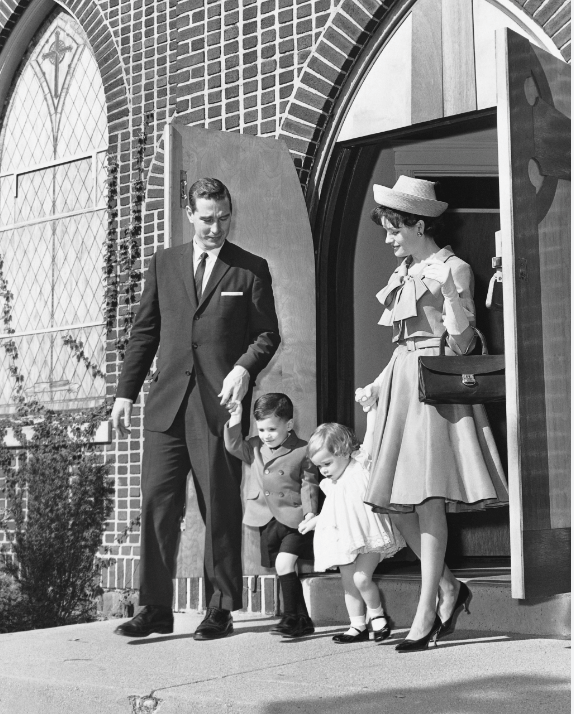Christianity And Generational Differences
The longer I’m on this earth, interacting daily with the myriad of people groups, the differences in generations becomes more and more profound to me. Christianity and generational differences is no different. How a person sees themselves, others, society, and ultimately God has a strong correlation with the natureof the world in which they navigated childhood.
Seven Living Generations
A generation is a group of people born at roughly the same time. They’re usually born during a span of fifteen to twenty years. Generations take on special meaning because their members tend to experience critical life events and transitions at particular historical moments. Collectively, these moments define their lives,
The most current generational designations come from the Pew Research Center. The PRC is described as a “nonpartisan fact tank that informs the public about the issues, attitudes, and trends shaping the world.” Nonetheless, other names and spans of years have been used to describe the generations for various purposes.

The GI Generation (aka Greatest Generation) [Born 1901–1927]
This generation lived through the Great Depression and then went off to fight in World War II. Notably, they popularized jazz and swing music. Due to the current events of this generation, raising a family put a premium on traits like hard work and grit. All other living generations are often examined in light of this generation.
The Silent Generation [Born 1928–1945]
The silent generation famously got their name for being so conformist that they were silent through the MacCarthy era. It was during those years that the fear of Communism swept the country. During this era, kids were expected to earn their way through life using a strong work ethic.

Baby Boomer Generation [Born 1946–1964]
Gen Z may think of Baby Boomers as their out-of-touch grandparents, but they had a wild youth we often don’t talk about. Boomers are so named after their parents came home from WWII, and the American population exploded. Baby Boomers defied their parents, protested the Vietnam War, and created the “Summer of Love.”
Some have divided the Boomer generation into two subgroups. First, the Older Boomers, were born between 1946-1955. These individuals were old enough to fight in Viet Nam, and grew up knowing only black and white television. Their younger counterparts – often referred to as Generation Jones – were born between 1955-1964. These folks were too young to be called into military duty during Viet Nam. And they grew up only knowing color television (albeit only 2-3 channels with rabbit ears). They were dubbed the Jones Generation due to having parents who sought to “keep up with the Joneses.” Adults strived to provide these children the things the parents didn’t have when they were young. This era opened up the landscape for what now is commonly referred to as “entitlement.”

Generation X (aka Gen X) [Born 1965–1980]
Often dismissed as the slacker generation, Generation X lived through the AIDS epidemic, MTV culture, and a shifting cultural landscape that would give rise to LGBTQ+ rights.
Generation X parents were famously the first to use helicopter parenting styles. Unlike their Boomer parents, who famously let their kids stay outside until the streetlights came on, Generation X parents had a tendency to be far more involved with their children’s social and educational development.
Millennial Generation (aka Generation Y) [Born 1981–1996]
Millennials lived through 9/11. They remember when Amazon only sold books. And they were also the first generation to know a childhood both with and without the internet.

While Boomers may accuse Millennials of being self-centered and entitled due to their excessive use of technology, this generation has proven to actually be incredibly community-oriented and environmentally conscious. These are traits that are being picked up by their children in the next generation.
When parenting, millennials “are more likely than prior generations to allow their children to freely express who they are. As a result, they are leading the movement in helping gender non-conforming kids to be happy with who they are.” According to one Christian sociologist, “Some millennial parents, who were ‘helicoptered over’ in their youth, are taking on a freer approach to parenting. They are allowing their children to explore and create without constant structure or supervision.”
Generation Z (aka Gen Z or iGen) [Born 1997–2010]
These “youngsters” are not old enough to have made their mark as a generation yet. Generation Z kids are the first to be born into a world where they know nothing else besides being constantly connected to one another, albeit through phones, screens, and tablets. Many seem to function more effecxtively in a virtual world than in the real, physical world.

Generation Alpha [Born After 2010]
In 2019, kids born after 2010 were designated as part of Generation Alpha. This generation was given the name “alpha,” dur to every member being born in the 21st century.
Generation Alpha is the first generation of kids who will never know a time when the internet and social media didn’t exist. They are far more tech-savvy than any generation previous to them. This will become a powerful tool that can change humanity in myriad positive ways.
It may be too soon to peg the Alphas as this or that based on how little we know about them so far. However, there are a few things we understand: They’re some of the first generation born around the COVID-19 pandemic. They’re more diverse than any other generation, and they’re more likely to be in a single-parent household.
[I will be continuing to write on this topic in my upcoming articles]’
Christian Counseling Can Help You Navigate Generational Differences Among Christians
Soul health and spiritual maturity cannot be separated. Our counselors are ordained Christian ministers as well as certified and licensed Christian counselors. We are able to help you experience freedom from shame, anxiety, depression, or marriage issues with methods that are purely Christ-centered. Please click on this link to learn much more about how our Christian counseling in Louisville, Kentucky can help you become a more authentic follower of Christ, and help you find freedom from identity dependence.https://lifetrainingcounseling.org/
Life Training offers convenient sessions at https://lifetrainingcounseling.org/depression-counseling/our office in Louisville, Kentucky, as well as online counseling via Zoom or FaceTime. Our non-profit counseling practice has had an outstanding track record from over a decade helping men and women, individuals and couples who are ready to move beyond anxiety, depression, and conflicts in marriage or other relationships find hope and healing in their lives. Contact us today at 502-717-5433, or by email at drdave@lifetrainingcounseling.org

